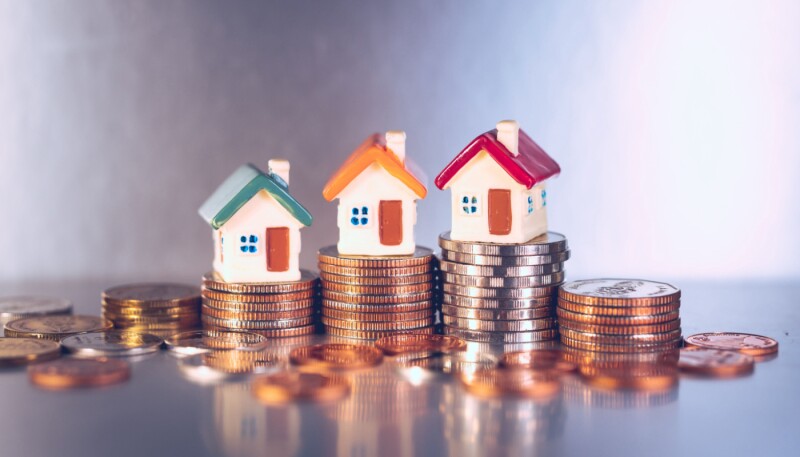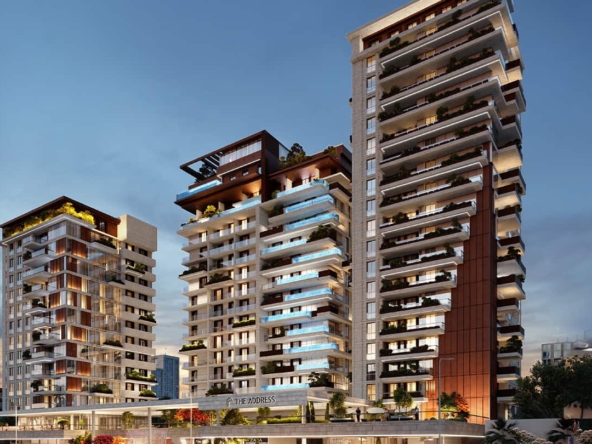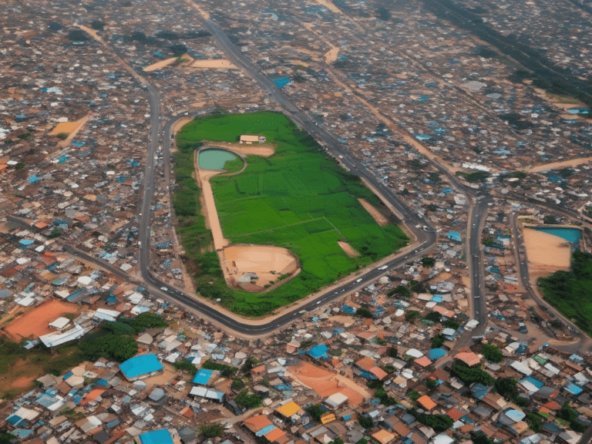Buying property in Ghana, whether as an investment or for personal use, requires navigating the country’s financing options. For an international investor, arranging financing can be more complex. This guide explores strategies and considerations for financing real estate purchases in Ghana as a foreign national.
Overview of Financing Options in Ghana
Several financing options exist for international buyers purchasing property in Ghana:
• Cash purchase – Buying with cash allows full ownership and avoids financing costs. Large purchases may require wiring funds internationally.
• International mortgage – Some international banks offer mortgages for properties in Ghana. These loans can provide leverage but also carry repayment obligations.
• Local mortgage – Mortgages can be obtained from banks in Ghana. Foreigners may need a larger down payment and higher interest rates.
• ** Developer financing** – Some projects provide their own financing for buyers, often requiring a portion as a down payment. Terms vary by developer.
• Home equity loan – Those with existing properties can sometimes use home equity loans or lines of credit to finance purchases in Ghana.
• Business or personal loans – Unsecured loans from banks or private lenders provide financing alternatives, but often with higher rates.
• Partnership purchase – Joining with other investors can allow buying larger, higher-value properties and spreading risk.
Developer Financing Options for Foreign Buyers
Many real estate developers in Ghana offer financing programs to attract foreign buyers. Common options include:
• Payment plans – Developers allow the purchase of property through payment installments over 6-18 months until the full purchase price is met.
• Down payment requirements – Developers may require as little as 5-10% down payment and directly finance the rest of the selling price.
• Interest rates – Developer financing interest rates are typically comparable to local bank mortgage rates.
• Leveraging presales – Developers use deposits from presales to finance early construction, allowing buyers to pay over time through completion.
• Post-construction financing – Buyers may secure bank financing after the project is completed to settle the remaining amount due to the developer.
• Approval requirements – Developer financing approval depends on factors like credit score, income, and property type. Likely more flexible than banks.
• Repayment terms – Developers often allow longer repayment periods of up to 5 years or more after taking possession of the property.
Developer financing can offer foreign buyers more accessible options for financing real estate purchases in Ghana versus traditional mortgages.
Purchasing Investment Property in Partnership
Partnering with family members or other investors when purchasing real estate in Ghana allows for acquiring larger, higher-value properties by pooling resources. Key benefits of partnership purchases include:
• Increased purchasing power – Combine down payments and obtain larger financing amounts.
• Ability to invest in prime areas – Share costs for pricier neighborhoods with greater rental demand.
• Risk reduction – Partners share in any losses and mitigate individual risk exposure.
• Shared management duties – Designate certain partners to handle selecting properties, financing, rentals, etc.
Important legal considerations for partnerships:
• Create a partnership agreement detailing ownership percentages, responsibilities, and exit strategies.
• Determine taxation for income and losses – file jointly or individually.
• Designate whether the property can be inherited or must be sold if a partner dies.
By dividing upfront costs, debt obligations, and ongoing duties, investors can buy real estate in Ghana that they may not be able to purchase solo.
Options for Sending Funds to Ghana for Purchases
Once financing is secured, international buyers need to transfer appropriate funds to complete real estate transactions in Ghana. Typical methods include:
• International wire transfer – Banks transfer funds in USD directly to a destination bank account in Ghana. Takes 1-7 days.
• Escrow service – Funds held by a third party and disbursed after closing conditions are met. Provides added security.
• Money transfer services – Companies like Western Union or MoneyGram offer same-day transfers. Low transfer limits.
• Currency exchange broker – Use a broker to exchange funds into Ghana cedis in advance. Avoid bank exchange fees.
• Online payment platforms – Services like PayPal allow electronic transfers to recipient accounts. Subject to platform fees and currency conversion.
When purchasing property in Ghana, it’s prudent to use regulated, insured transfer methods and avoid carrying large cash amounts. Retaining receipts as proof of payment origin provides documentation for tax and legal purposes.
Options for Financing Land Purchases in Ghana
Buying vacant land for development or investment purposes in Ghana has some unique financing options:
Land Loans
• Offered by specialized lenders for buying plots of land
• Usually up to 60-70% of the land purchase price
• Interest rates start around 15% typically
• Terms up to 20 years
Personal Loans
• Unsecured personal loans based on income and credit score
• Usually cover up to $20,000 maximum
• Carry higher interest rates than secured financing
Hard Money Loans
• Asset-based funding from private investors and lenders
• Close quickly with less documentation than traditional loans
• Short terms of 1-5 years with balloon payment due
• Higher interest rates than conventional loans
Partnership Equity
• Pool money with other individual investors in a real estate partnership
• Each partner owns a percentage of the land purchase
• Allows buying more oversized, higher-value parcels
Evaluating various land financing options can help international investors access the capital to purchase vacant plots for future development as opportunities arise.
Outlook for Overseas Real Estate Investment Financing
Ghana’s steady population growth, expanding economy, and stability will likely attract ongoing foreign real estate investment. This bright outlook makes navigating financing options worthwhile despite current challenges.
Buying Commercial Property as a Foreign Investor
Ghana’s ongoing economic development is creating opportunities for foreign investors seeking commercial real estate like office buildings, retail centers, and mixed-use properties. Popular locations include:
• Accra – Ghana’s capital and largest business hub
• Kumasi – Rapidly growing metropolitan area
• Takoradi – Major seaport city with petroleum and timber industries
• Tema – Home to Ghana’s largest seaport and industrial free trade zone
Benefits of commercial investments include:
• Upside potential from rising demand for business premises
• Rental income from office, retail, or industrial tenants
• Capital appreciation over time – values doubled in Accra CDB since 2015
• Development opportunities for new construction
However, financing commercial properties as an overseas investor presents unique challenges:
Limitations on Foreign Ownership
• Ghana prohibits non-citizen land ownership outside of industrial zones
• Must create a corporate entity with majority Ghanaian ownership
• Higher taxes on rental income earned by foreign entities
Difficulty Securing Debt Financing
• Local banks hesitant to lend for commercial purchases
• Often requires a 50% or higher down payment
• May need to provide a personal guarantee or corporate assets as additional collateral
Cost Overruns During Construction
• Projects prone to delays and budget overages, requiring contingency funds
• Must carry higher project insurance coverage
Despite hurdles, Ghana’s commercial real estate upside makes creative financing strategies worthwhile for international investors seeking alternatives to volatile securities markets.
Unique Financing Challenges in Ghana’s Affordable Housing Sector
With housing prices escalating in cities like Accra, affordable housing has become a pressing need in Ghana. This presents opportunities for socially-minded foreign investors, but arranging financing poses challenges including:
Low-Income Tenant Base
• Harder for banks to assess the creditworthiness of tenants
• Perception of higher default risk on rents
Smaller Profit Margins
• Tight budgets limit rental amounts charged
• Restricts ability to service high mortgage debt
Lack of Government Subsidies
• Limited public funding programs to promote low-income housing
• Must rely fully on private or nonprofit capital
High Borrowing Rates
• Ghana’s interest rates are among the highest in Africa
• Reduces viability of financing large affordable projects
Innovative programs like microfinancing, crowdfunding, and partnerships with impact investors may help bridge Ghana’s affordable housing gap. Patient foreign capital can be part of the solution.
Consulting Real Estate Professionals
Given Ghana’s complex real estate financing landscape for international buyers, seeking guidance from seasoned professionals is highly recommended. Key experts to engage include:
• Real estate attorneys – Help navigate legal issues, review documentation
• Property managers – Provide local market knowledge, oversee rentals for investment properties
• Appraisers – Accurately assess property values to support purchase prices
• Accountants – Advise on structuring partnerships, taxation considerations
• Construction managers – Oversee development projects, control costs
Though entailing some added costs, experienced real estate teams are well worth their fees to steer foreign buyers through unfamiliar purchasing and financing processes while avoiding costly missteps. Carefully weighing these dynamics for each purchase can steer foreign investors toward optimal financing strategies aligned with their priorities, budgets, and risk-reward considerations.
Conclusion
While complex, Ghana’s favorable long-term investment fundamentals make taking the time to explore creative real estate financing strategies worthwhile for international investors. Partnering with reputable developers like VAAL Ghana can provide turnkey solutions to simplify the process. Their new Harmonia Residence development offers furnished, amenity-rich apartments starting from $98,000 with flexible payment plans available. For those seeking hassle-free investment options in Accra’s thriving Airport Residential Area, Harmonia Residence warrants consideration.
FAQs About Financing Real Estate Investments in Ghana
1. What percentage down payment is typical for foreign buyers purchasing property in Ghana?
Most lenders expect foreign buyers to make a minimum down payment between 25-50% for real estate purchases in Ghana. Local citizens can often buy with 5-15% down.
2. What types of properties in Ghana allow financing for foreign buyers?
Foreigners can generally get mortgages for completed residences and apartments located in Ghana’s major urban centers like Accra and Kumasi. Vacant land, rural properties, and: leasehold estates often cannot be financed.
3. Should I buy property in cash or use financing as an overseas buyer in Ghana?
Paying cash allows full ownership control and avoids financing costs. But mortgages provide leverage, enabling the purchase of more expensive properties for investment income and equity buildup. One’s financial profile and goals help determine the better option.
Source: Marcopolis.net





